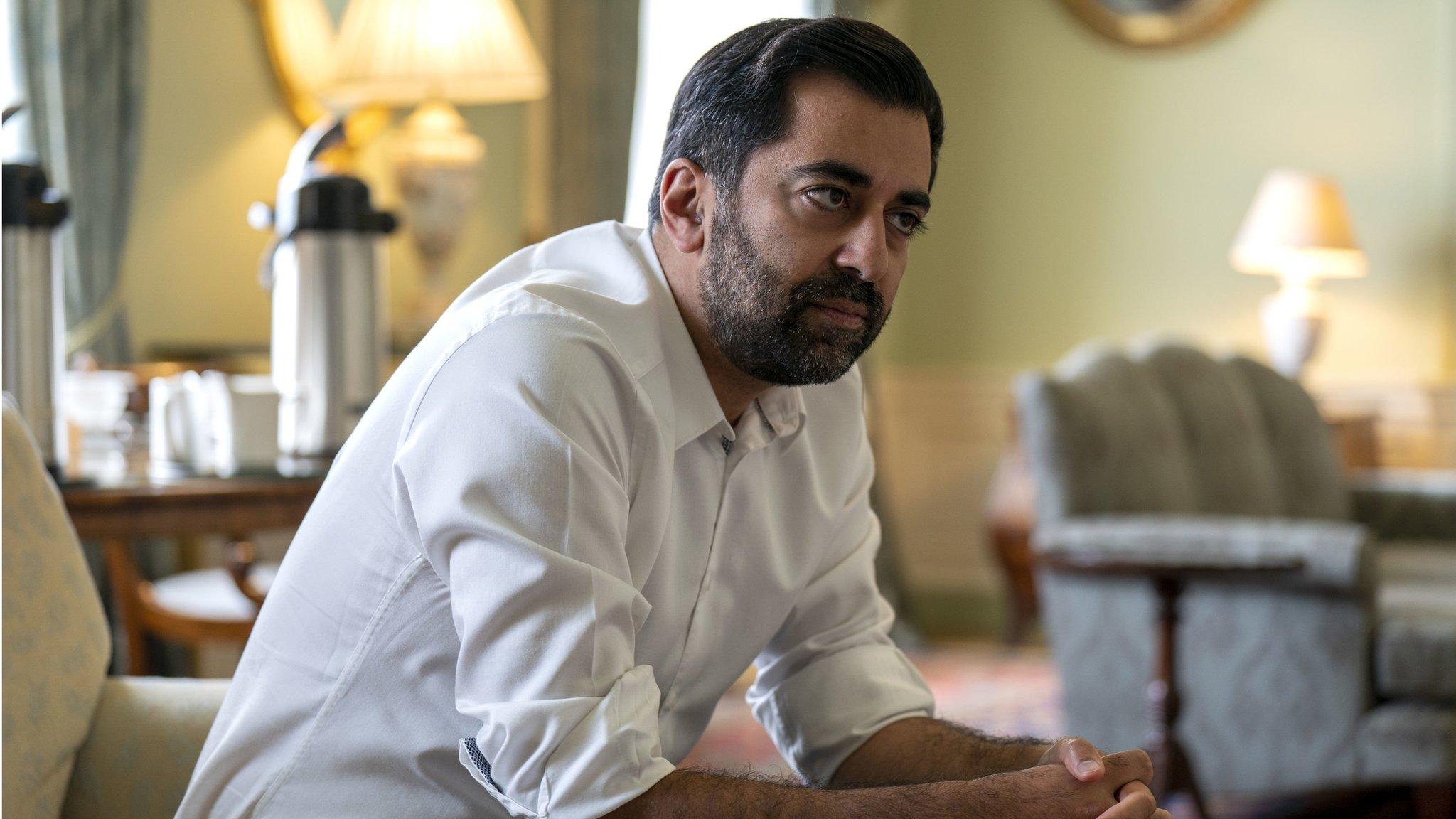Can the SNP's independence plan change the union's future?
- Published
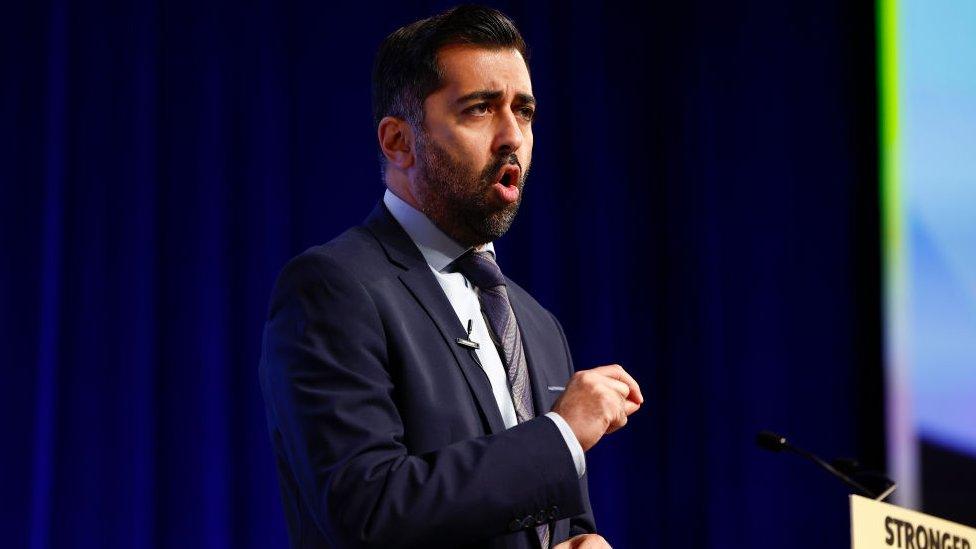
Delegates voted through Humza Yousaf's strategy for independence at the SNP Conference in Aberdeen
Patience and unity. That is what the Scottish National Party leader, Humza Yousaf, wants from his party now.
Addressing the SNP's annual conference in Aberdeen, in a much smaller hall than the one it used at great expense last year, Mr Yousaf sought to temper the expectations of SNP members who are hungry for immediate change.
His key line — "there is no shortcut that will get us to independence" — was a signal to delegates that he wants the SNP to focus on building a clear and sustained majority in favour of leaving the UK.
"We must move on," he insisted, "from talking about process to talking about policy."
Success, he said, would require listening, campaigning and persuading. In other words, "not talking about the how of independence," but talking about the why.
Nonetheless, the conference did in fact spend a large chunk of Sunday afternoon talking about 'the how'.
In the end, delegates voted overwhelmingly in favour of Mr Yousaf's strategy, stepping back from the idea floated by his predecessor, Nicola Sturgeon, of treating the next general election as a referendum in all but name.
Instead the party will demand an actual referendum if it wins a majority of Scottish constituencies at Westminster — 29 seats — even though it won 48 in 2019.
"I trust Humza on this," Emily Cheung, a delegate from Edinburgh, told me, adding: "I think he's a very charismatic guy and, honestly, if there's anyone who can bring people over, it's probably him."
Tackle 'twin crises'
Mr Yousaf said the SNP would put the constitution front and centre in the campaign, with line one of the party's manifesto reading "vote SNP for Scotland to become an independent country".
Both Labour and the Conservatives have previously made it clear that they regard such talk as a waste of air, insisting that they will block a second referendum on independence.
The SNP's attempts, along with the Scottish Green Party, to use their current pro-independence majority at Holyrood to hold one have already been stymied by the UK government's refusal to grant consent, and by the Supreme Court's ruling that the Scottish Parliament does not have the right to do so alone.
Perhaps with that in mind, delegates here in Aberdeen also voted for London to devolve more powers to Edinburgh to tackle what were described as the "twin crises" of the cost of living and climate change.
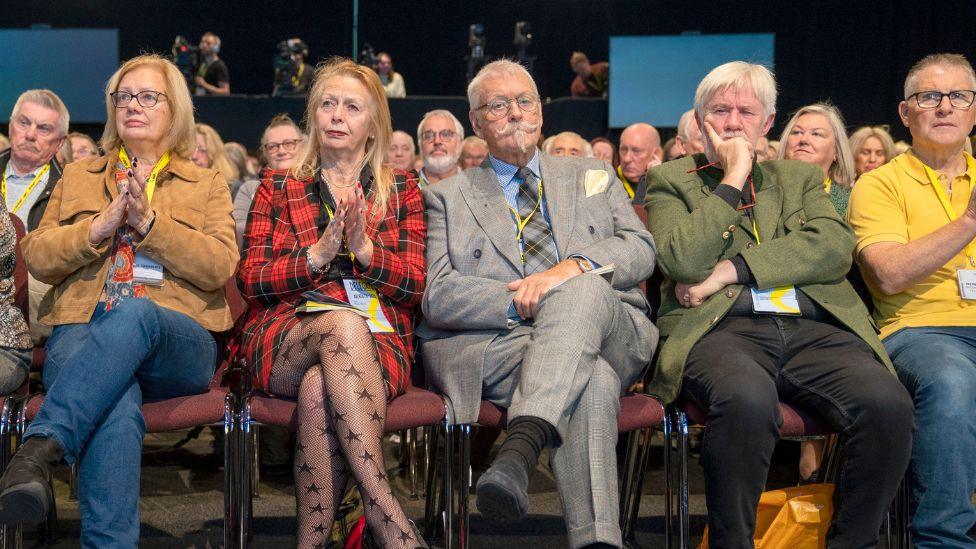
SNP delegates voted on an independence strategy at the party's annual conference in Aberdeen
Among the items on the list were control over employment rights and the minimum wage, windfall taxes on energy companies, and employment visas for overseas workers.
Those ideas were proposed by Tommy Sheppard, the SNP MP for Edinburgh East, who told me that, if all else failed, the party's fall-back position was to return to the idea of a de facto referendum on independence at the 2026 Scottish parliamentary election.
"The opportunity is there, should we need it," he said, to "consider using that election to allow people in Scotland to decide yes or no, do they want to move forward to independence."
This hedging of bets reflects concern in senior SNP circles about polls which suggest Labour could pick up 20 or more Scottish seats at a general election which is expected to be held next year.
Such a result would be a significant setback for the SNP which has been the main engine of the independence movement at least since its 1967 by-election victory in Hamilton, South Lanarkshire.
SNP machine in trouble
From the turn of the century, Alex Salmond and Nicola Sturgeon used the power base provided by the opening of the new Scottish Parliament to turn the SNP into both a party of government and a formidable campaigning machine, eventually securing a referendum in 2014.
Although the people of Scotland voted to remain in the UK by 55% to 45%, that was not the end of the road for the SNP.
In 2015, the party swept the board at the general election, taking 56 of Scotland's 59 seats in the House of Commons.
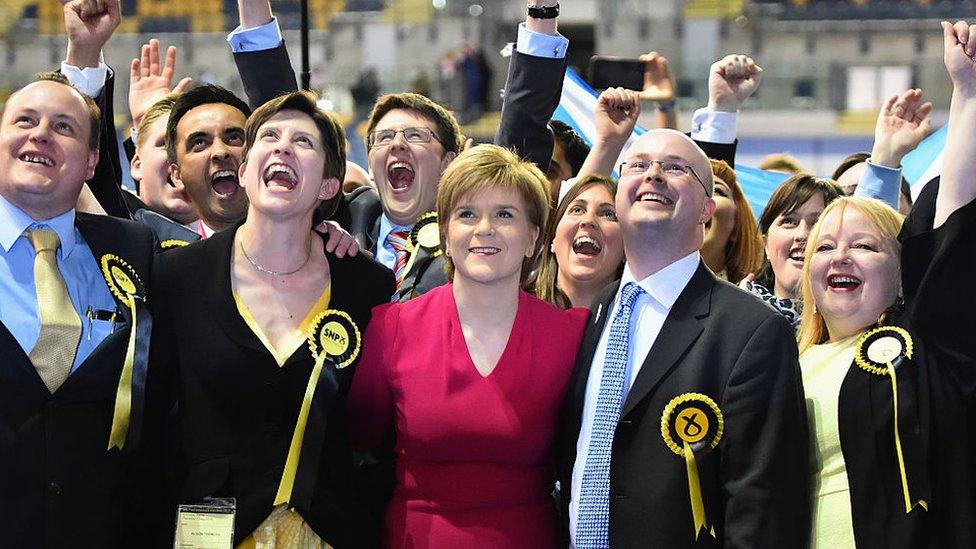
Nicola Sturgeon attended the Glasgow count to hear the results of the 2015 general election announced
But by the time Mr Yousaf narrowly won the leadership in March, that machine was in trouble. Seven months on, the gears are crunching, the wheels are wobbling and the engine is spluttering.
There are many reasons why.
First, governing devolved Scotland since 2007 has brought challenges as well as opportunities.
Running the nation's hospitals and schools as well as administering some taxes and benefits, soaked up a lot of time and effort, especially during the pandemic.
The result, say some critics of the SNP inside the independence movement, is that the party has taken its eye off the prize and now represents a cosy new establishment in Edinburgh when it should be laser-focused on planning for a new state.
Supporters of the 316-year-old union with England, including Labour and the Conservatives, make the mirror-image claim, alleging that Scotland's public services are in a dire state and that the reason is the SNP's 'obsession' with independence.
'Bread and butter issues'
The past two weeks have been particularly bruising for the SNP with the loss of one Westminster seat to Labour in the Rutherglen and Hamilton West by-election and another to the Tories, with the defection of Lisa Cameron, who represents East Kilbride, Strathaven and Lesmahagow.
Then there is the police investigation into the funding and finances of the SNP which has, in Mr Yousaf's description, engulfed his party.
Ms Sturgeon; her husband, the former chief executive Peter Murrell; and the former treasurer Colin Beattie have all been arrested, and subsequently released without charge.
And yet polls suggest that a slump in support for the SNP has not been accompanied by a fall in support for independence, which continues to hover just below 50%, external.
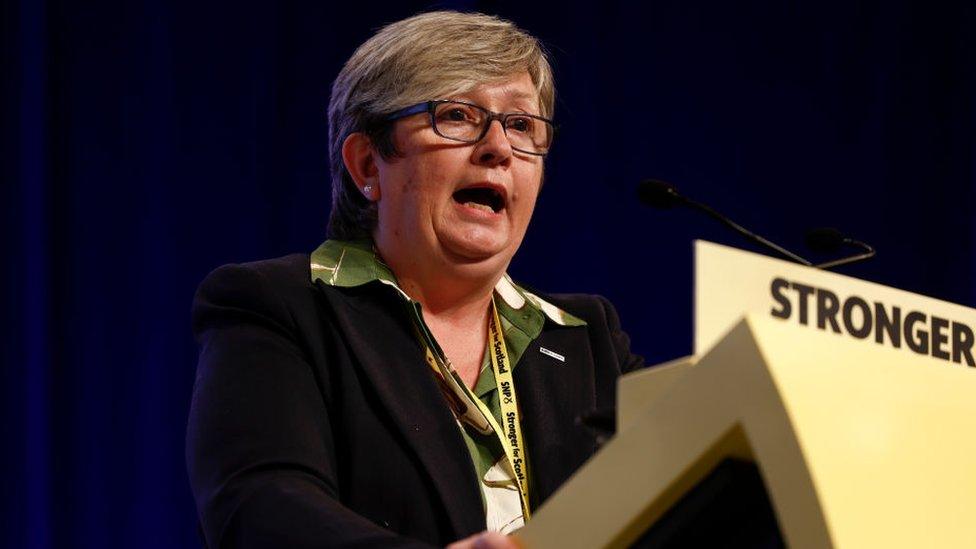
Joanna Cherry's amendment to the independence plan was approved by delegates
Joanna Cherry KC, the SNP MP for Edinburgh South West, and a thorn in the side of Ms Sturgeon during her tenure as leader, said her party needed to take heed.
Ms Cherry's amendment to the independence plan, calling for a constitutional convention made up of MPs, MSPs and "representatives of civic Scotland" to take forward negotiations with the UK government, was approved by delegates.
"Let's be honest," she told me, "we're going down in the polls at the moment and we need to address that by getting back to talking about bread and butter issues, the issues that really matter to people," adding "we have to link that to our independence offering."
Whether or not the party can do so successfully may determine the future of the United Kingdom itself.
- Published16 October 2023
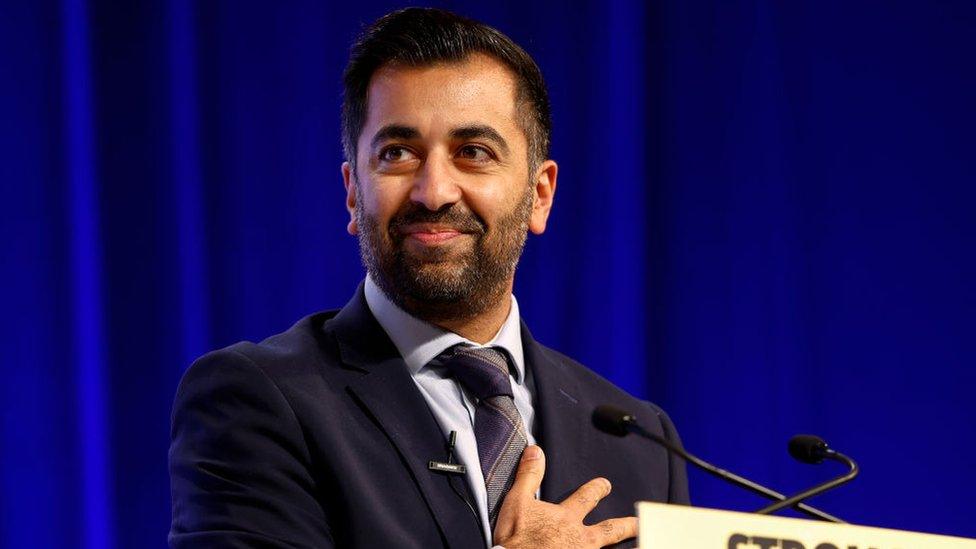
- Published15 October 2023
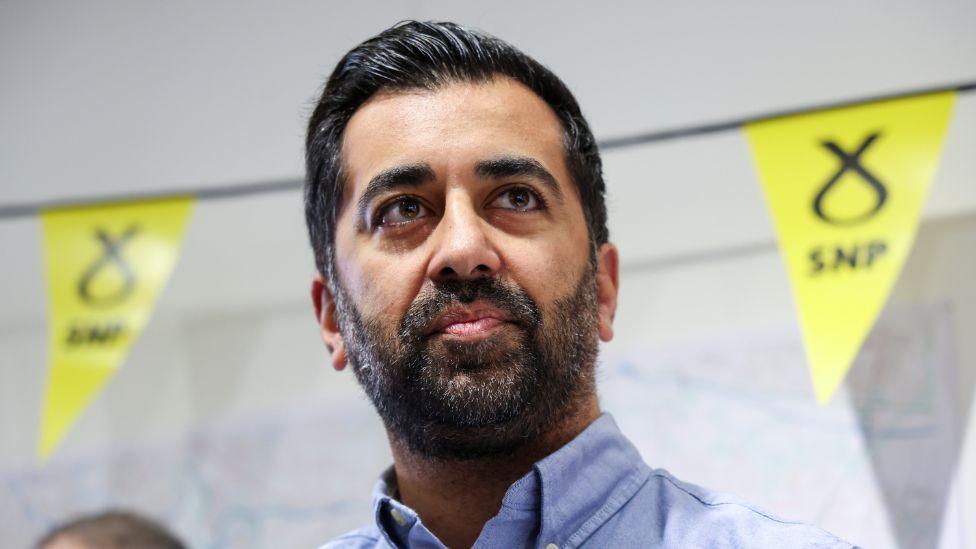
- Published15 October 2023
